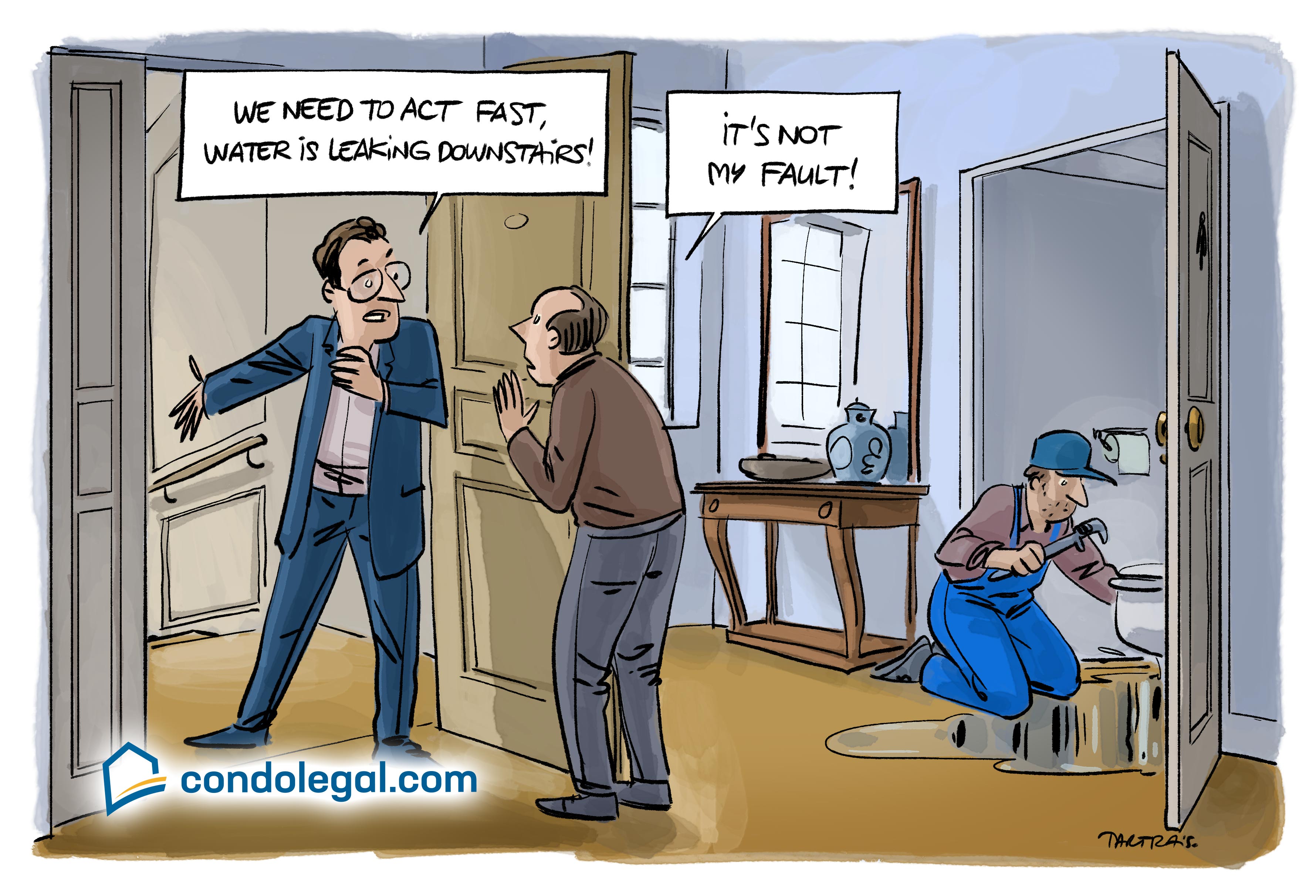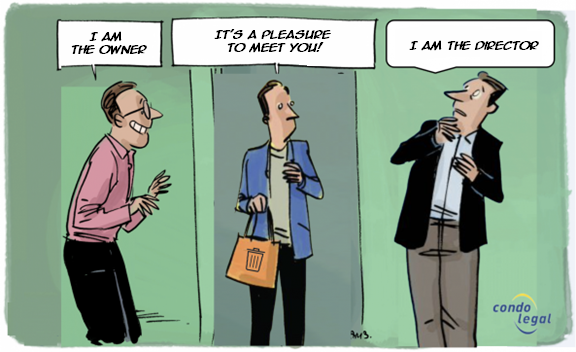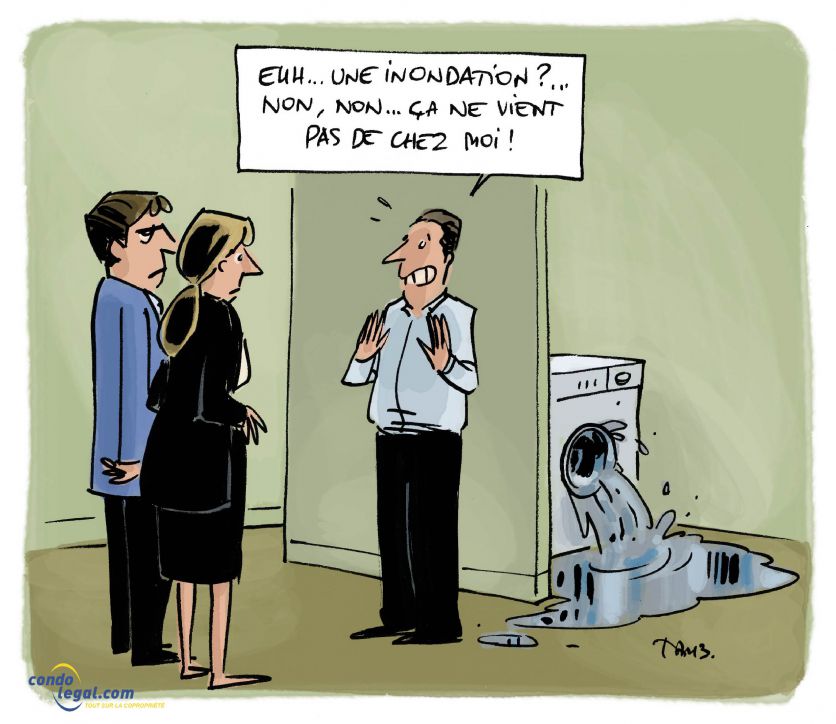 Two recent rulings by the Court of Québec underscore the significant difficulties syndicates encounter when attempting to recover insurance deductibles for damages caused by tenants, highlighting not only the legislative and practical shortcomings in claims management but also the broader implications of these challenges, which persist despite amendments to article 1074.2 of the Civil Code of Québec, ultimately threatening the financial stability of co-ownership properties and raising critical questions about tenant liability and the mechanisms available to syndicates for recovering these deductibles.
Two recent rulings by the Court of Québec underscore the significant difficulties syndicates encounter when attempting to recover insurance deductibles for damages caused by tenants, highlighting not only the legislative and practical shortcomings in claims management but also the broader implications of these challenges, which persist despite amendments to article 1074.2 of the Civil Code of Québec, ultimately threatening the financial stability of co-ownership properties and raising critical questions about tenant liability and the mechanisms available to syndicates for recovering these deductibles.
Summary of two jugements
In this case, a tenant caused water damage by leaving a faucet running, damaging units and common areas. The syndicate sought to recover the insurance deductible from the landlord co-owner, citing a clause in the declaration of co-ownership holding co-owners liable for their tenants’ actions.
The court rejected this claim, relying on article 1074.2 of the Civil code of Quebec, which states that syndicates can only recover deductible amounts from co-owners if they or those under their care are directly responsible for the damage. Here, the fault was solely attributed to the tenant, and the court noted that no provision in the Civil Code requires the co-owner to repair damage caused by their tenant.
2. Syndicat des copropriétaires du 1200 Ouest c. Michel Bouvet et al., 2024 QCCQ 6916
In this second case, water damage was caused by a dishwasher in a rented unit. The syndicate attempted to hold the landlord co-owners liable, but the court ruled that the tenant, not the landlord, was in control of the dishwasher.
Furthermore, the court emphasized that a declaration of co-ownership clause imposing strict liability on co-owners for tenant faults is "deemed unwritten" under Article 1074.2. There was no legal basis to hold the co-owners accountable for their tenant's actions.
Limited scope of amended article 1074.2
The revised article 1074.2 of the Civil Code of Québec aims to clarify co-owner liability in damage cases. It allows syndicates to recover insurance deductibles when a co-owner’s liability is involved, including harm caused by their fault, actions of someone under their care, or items under their control.
However, recent rulings demonstrate that this objective remains largely unattainable in practice. Co-ownership syndicates must not only prove that the tenant is responsible for the damages but also establish a precise causal link between the tenant’s actions and the damages, in addition to being unable to proceed through the landlord co-owner. Instead, they must directly sue the tenant. This requirement is extremely complex, especially in buildings where units are rented out on a short-term basis or where tenants are numerous and difficult to identify.
Although one might argue that article 1065 of the Civil Code of Québec has resolved the issue by requiring co-owners to notify the syndicate within 15 days of a rental or a loan for use, in practice, this is not always carried out, particularly in cases of short-term rentals. As a result, the syndicate is left to fend for itself or must give up entirely. This creates a glaring inequity.
Challenges in identifying responsible tenants
Syndicates often face significant hurdles in identifying at-fault tenants. In short-term rental cases, owners frequently fail to disclose tenant identities to the syndicate. Consequently, when damage occurs, determining who occupied the unit at the time becomes nearly impossible.
The recent rulings illustrate this issue. In one case, the court concluded that the syndicate lacked sufficient evidence to attribute responsibility to the tenant. Without such identification, the syndicate's claim for the insurance deductible was dismissed, forcing it to absorb the cost, which can amount to hundreds of thousands of dollars.
This highlights a flaw in Québec's divided co-ownership insurance regime: while the law requires co-owners to declare their tenants to the syndicate, the absence of penalties and the inability to enforce liability insurance limits the effectiveness of this obligation, particularly in short-term rental scenarios. This hampers syndicates’ ability to protect the collective interests of co-owners.
Lack of insurance obligation for tenants
Another aggravating factor is the lack of a legal requirement for tenants to carry liability insurance. Unlike France, where tenants must legally obtain insurance to cover rental risks, Québec law imposes no such obligation.
This gap places syndicates in an even more vulnerable position. When a tenant is found liable for damage but lacks insurance, the syndicate often has no practical recourse to recover the costs. This situation was evident in the second ruling analyzed, where the responsible tenant lacked insurance coverage. The syndicate had to bear not only the insurance deductible but also additional repair costs.
The lack of an insurance obligation for tenants creates an imbalance between co-owners and occupants. Co-owners are often subject to strict insurance requirements through the declaration of co-ownership, while tenants evade these obligations, increasing financial risks for the co-ownership.
Financial impacts on co-ownerships
These rulings clearly illustrate the severe financial impacts on co-ownership syndicates. When damage occurs, the insurance deductible becomes a significant expense for the syndicate. If the responsible tenant cannot be identified or lacks insurance, the cost is shared among all co-owners, including those who bear no responsibility for the damage.
This situation weakens the financial stability of co-ownerships, particularly as insurance premiums and deductibles rise significantly in Québec. For some syndicates, these additional costs may lead to budget deficits, special assessments, or increased common charges, further burdening co-owners financially.
Potential solutions: Learning from the french model
To address these challenges, several avenues could be explored to better protect co-ownerships in Québec:
Failure to comply with these obligations should result in the landlord co-owner being presumed responsible for damages caused by their tenant or any other unit occupant, without the need to establish fault. Such a measure would strengthen the protection of co-owners' collective interests and provide more rigorous oversight of rental relationships in co-ownerships.
A legislative reform is necessary
Recent Québec court rulings demonstrate that Article 1074.2, in its current form, has failed to achieve the intended outcomes for co-ownership syndicates. Legislative gaps, including the lack of a tenant insurance requirement and difficulties in identifying responsible tenants in short-term rental cases, significantly weaken the financial position of co-ownerships.
The Regroupement des gestionnaires et copropriétaires du Québec (RGCQ) believes it is imperative for the Ministry of Finance to address these issues and introduce legislative adjustments. In particular, implementing a tenant insurance obligation and improving tenant identification processes, including for short-term rentals, are crucial steps.
Québec could draw inspiration from the French model, where tenants are legally required to carry liability insurance, and stricter declaration mechanisms are in place. Without these reforms, syndicates and co-owners will continue to face significant financial challenges, unable to effectively recover damages caused by tenants.
Montreal, December 14, 2024
Me Yves Joli-Coeur, avocat émérite
President of the Regroupement des gestionnaires et copropriétaires du Québec
Courriel : [email protected]

01/07/2024

20/05/2024

01/07/2024

01/01/2024

23/06/2024
